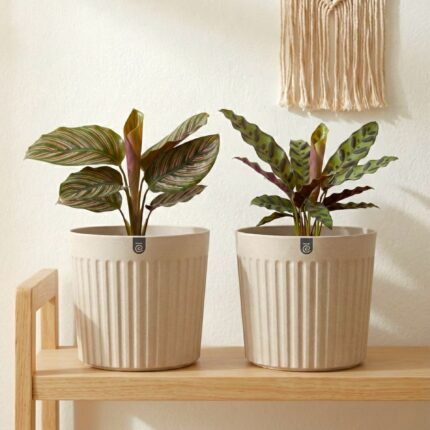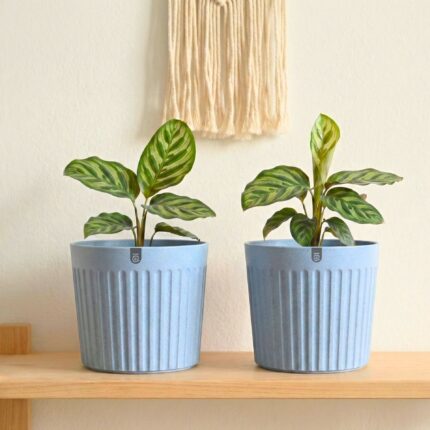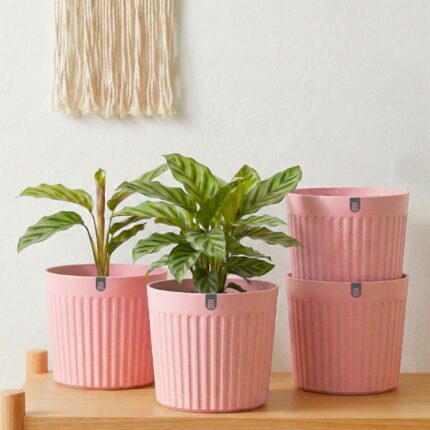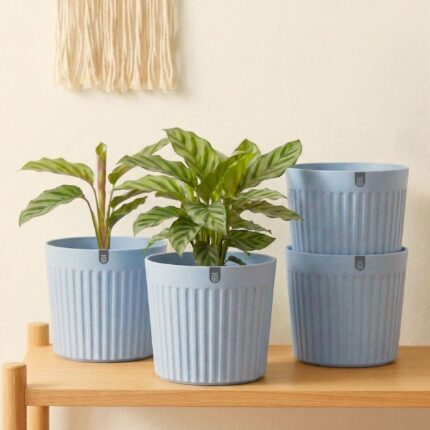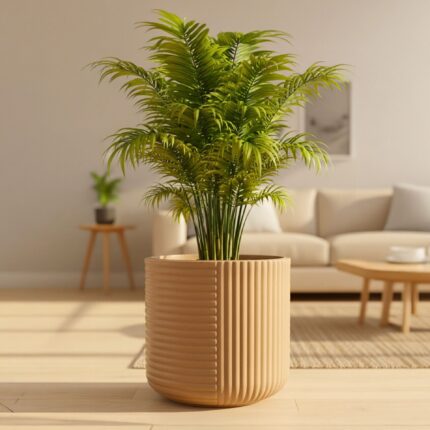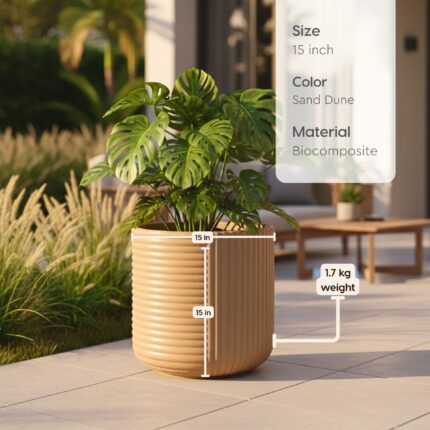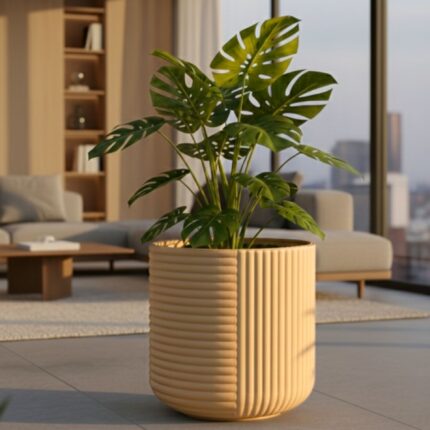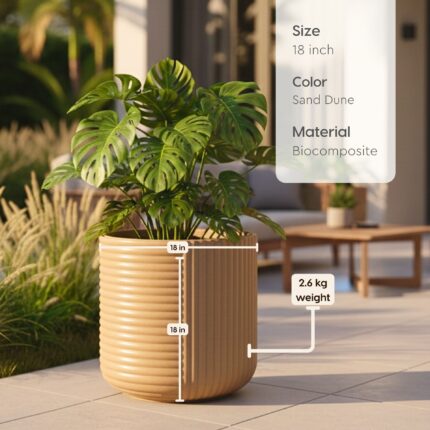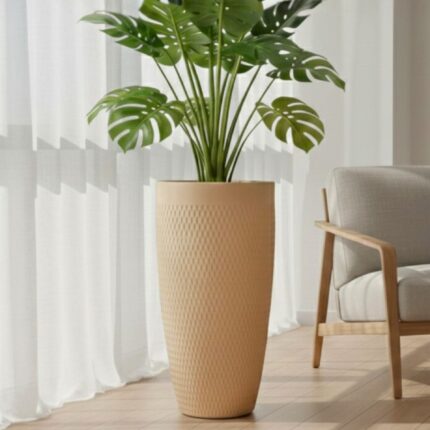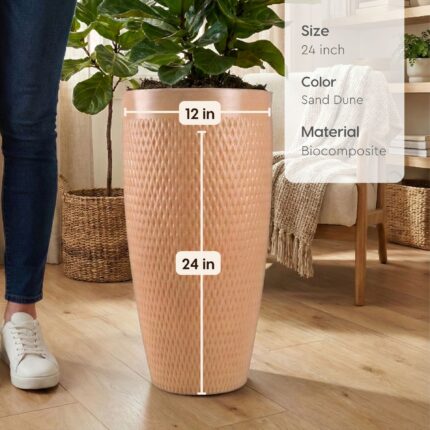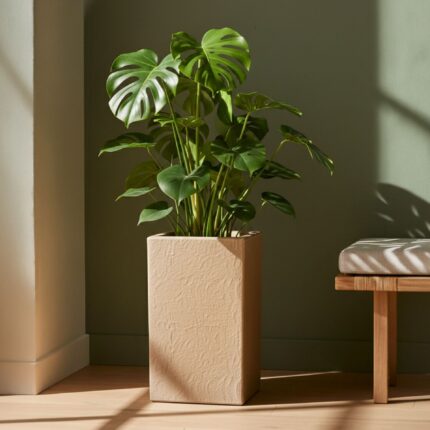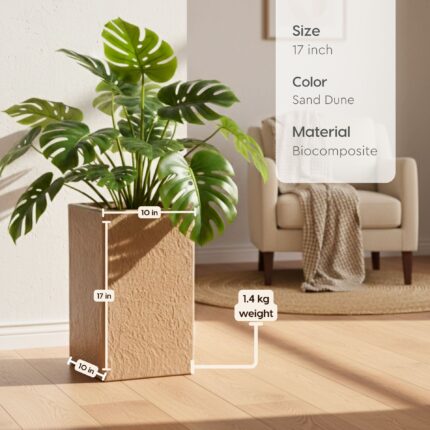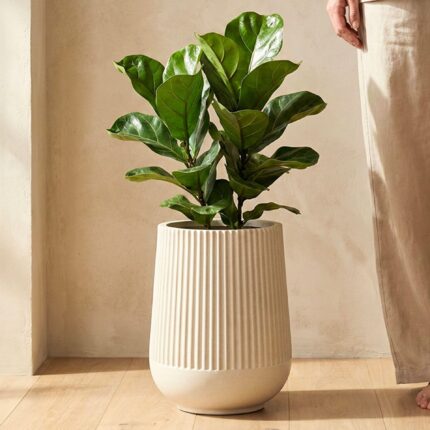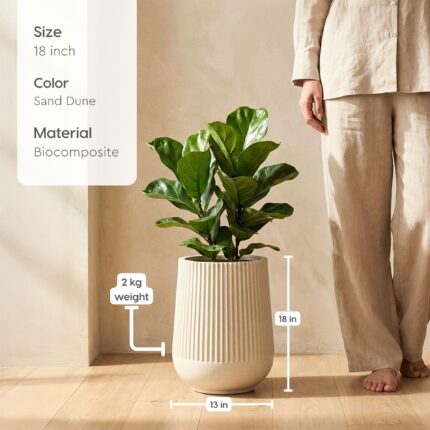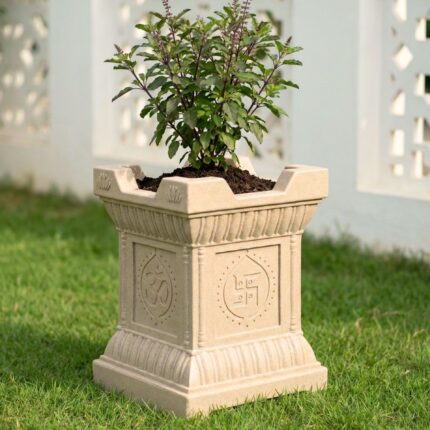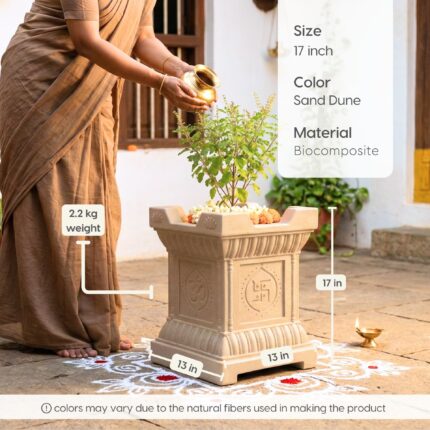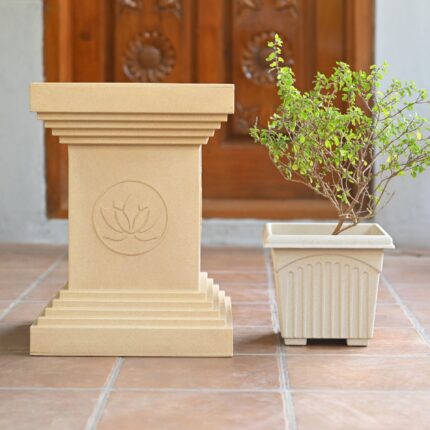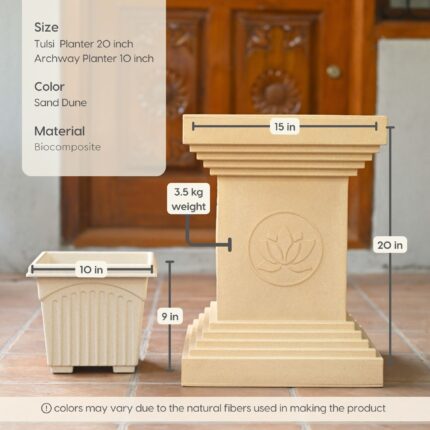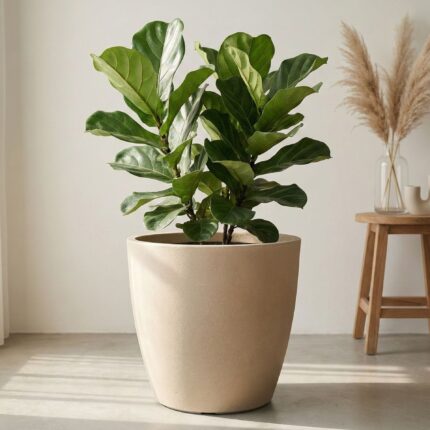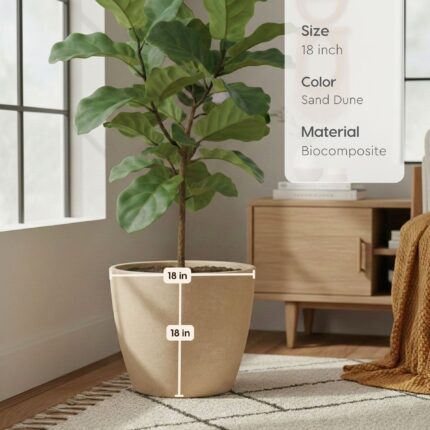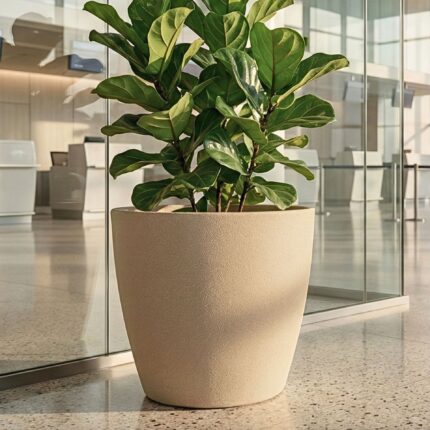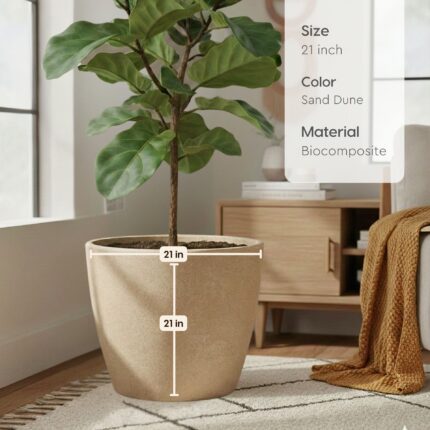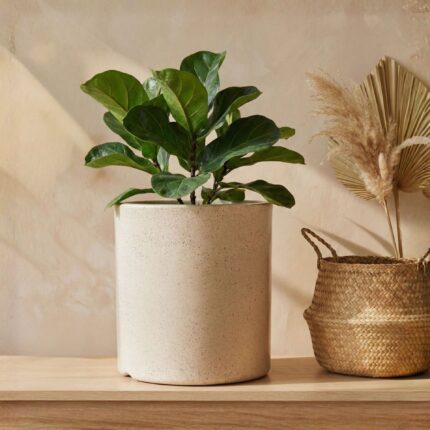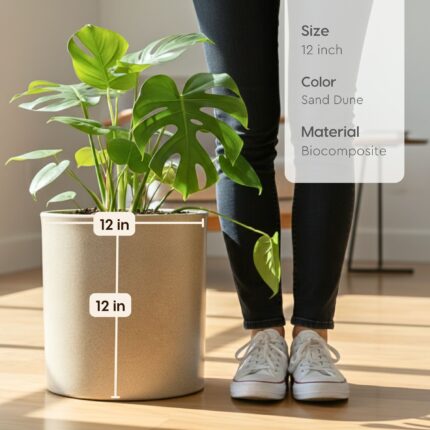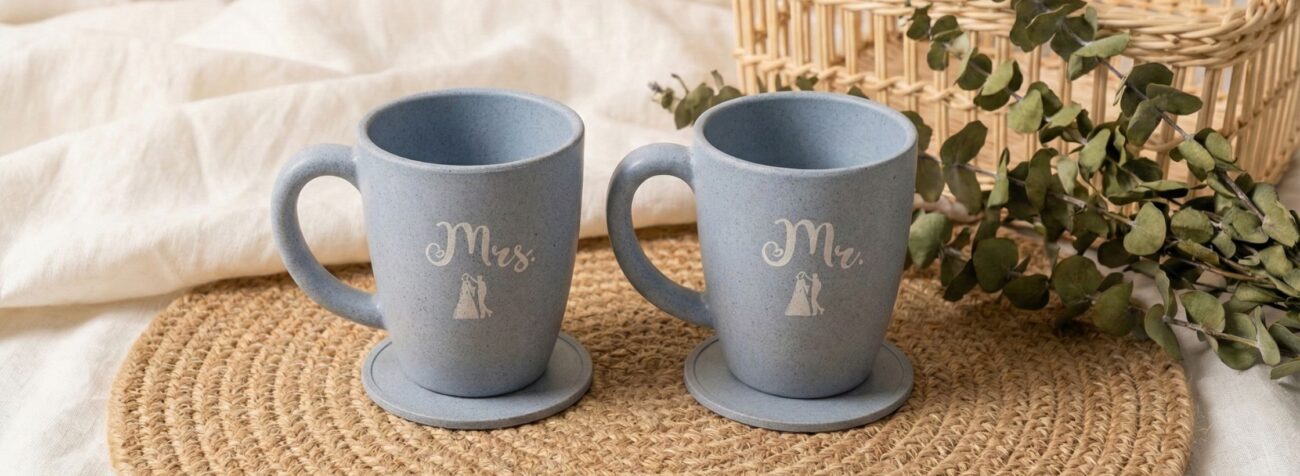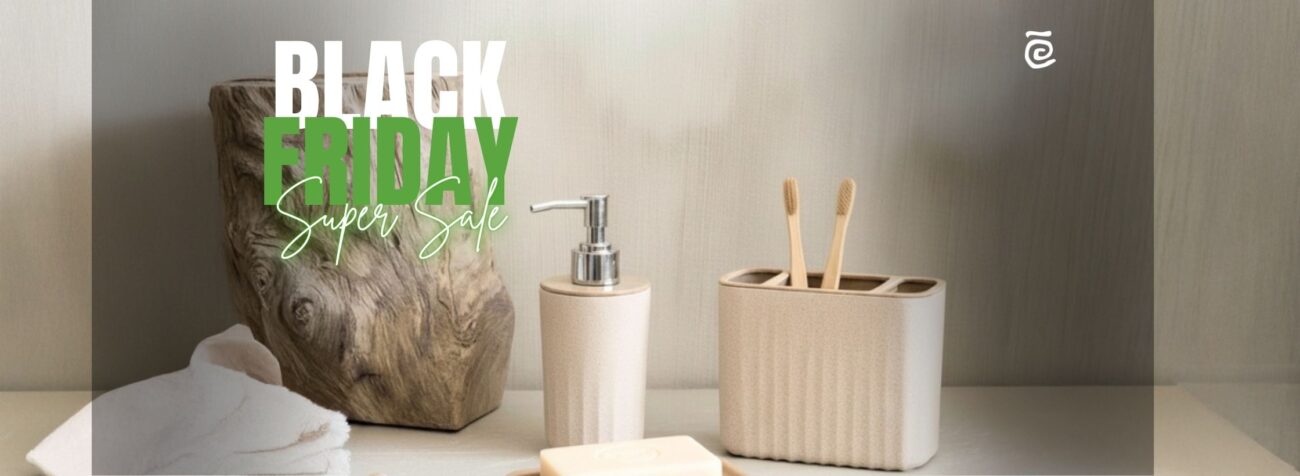Planting for Prosperity: A Sustainable Ugadi Garden Guide

Planting for Prosperity: A Sustainable Ugadi Garden Guide
Sustainable Ugadi celebrations can be a beautiful way to embrace eco-friendly practices, from planting native trees to choosing eco-conscious gifts and tableware.
When Ugadi rolls around, what’s the first thing you think of? Is it the delicious food, the new beginnings, or maybe the fresh energy that comes with the start of the new year? But let’s pause for a second and think—what if this Ugadi, we also plant seeds for a greener future? That’s right, let’s combine the joy of celebration with the power of sustainability.
Now, we know you might have a few questions popping up: How can I create a sustainable garden for Ugadi? How can I make sure my garden is not just pretty but also good for the planet? Or maybe, you’re wondering, What does sustainability even mean when it comes to gardening? Don’t worry, we’re going to cover all this and more in this blog. Let’s dive into it, and we’ll help you get started with your Sustainable Ugadi Garden Guide.
Sustainable Ugadi: What Does It Mean?
First things first, let’s break down what “sustainable” really means in the context of Ugadi and gardening. In simple terms, sustainable gardening focuses on growing plants in ways that are good for the environment, reduce waste, and support the local ecosystem. It’s about making mindful choices that not only benefit us today but also leave the earth better for future generations.
Now, think about this: You’ve got your beautiful garden set up to celebrate Ugadi, and you’ve made sure that your gardening choices align with sustainability. From upcycled pots to eco-friendly planters, your garden is a reflection of your values. Doesn’t that sound amazing?
Starting Your Sustainable Ugadi Garden: Where to Begin?
If you’re ready to plant the seeds for a greener future this Ugadi, you’re in the right place. Let’s kick things off with a few easy steps that’ll get your garden off to a sustainable start.
- Choose Native Plants for a Sustainable Ugadi Garden
Native plants are the unsung heroes of sustainable gardening. They are naturally adapted to your climate, require less water, and help local wildlife thrive. By choosing these plants for your Ugadi garden, you’re not just decorating your space—you’re helping conserve resources and promoting biodiversity.
For example, instead of reaching for exotic plants that require heavy watering and care, opt for something like a local jasmine or marigold. These plants have deep roots in your area’s ecosystem and don’t need much pampering.
- Use Sustainable Pots and Planters
What’s a garden without pots and planters? While they’re essential, they can also be a huge source of waste if not chosen wisely. Let’s avoid plastic pots that end up in landfills and look for alternatives that are durable and eco-friendly.
Look for biodegradable planters, recycled pots, or even upcycled containers to give your plants a stylish and sustainable home. Think about it: a recycled terracotta pot, or a planter made from reclaimed wood, can really elevate your garden’s look while being kind to the planet.
Here’s an idea: If you’ve got old ceramic cups or mugs lying around, why not repurpose them as small planters? They’re perfect for herbs or small flowers and give your garden a charming, personal touch.
- Conserve Water with Smart Gardening Techniques
Watering your plants might seem simple, but it’s one area where sustainable gardening really shines. To conserve water this Ugadi, consider installing a rainwater harvesting system or using drip irrigation. Both methods help you make the most out of every drop of water, which is crucial, especially in areas where water scarcity is a concern.
Another easy hack? Water your plants early in the morning or late in the evening when temperatures are cooler. This reduces evaporation and ensures your plants get the hydration they need without waste.
- Compost for a Greener Garden
Composting is a no-brainer when it comes to sustainable gardening. By turning your kitchen scraps and yard waste into nutrient-rich compost, you’re reducing waste and creating a natural fertilizer that will help your plants thrive.
Instead of throwing away food scraps, add them to your compost pile. Banana peels, coffee grounds, and vegetable scraps can all go into the mix. It’s a small effort that pays off in the long run.
- Recycling and Upcycling Materials for Your Garden
If you’ve ever thought of throwing something away, stop right there! Your old, unused items might just be perfect for your garden. Recycle old glass jars into small vases, use old wine bottles as garden markers, or upcycle wooden pallets into garden shelves.
The possibilities are endless. It’s a great way to reuse materials you already have, reduce waste, and add a personal touch to your sustainable garden.
Sustainable Ugadi: Going Beyond the Garden
Sustainability isn’t just about what you grow—it’s also about how you celebrate and live. From your choice of tableware to your gifting ideas, there’s so much you can do to make this Ugadi more eco-conscious.
Sustainable Tableware: Look for fair trade certified, biodegradable, or recyclable tableware for your Ugadi celebrations. Products made from bamboo or plant-based materials are a great alternative to single-use plastic.
Eco-Friendly Gifts: When you’re gifting, consider choosing items that are durable and sustainable. Think about recycled home decor, upcycled storage boxes, or handmade mugs. These items make for meaningful and eco-conscious gifts.
Green Economy Choices: For those looking to reduce their carbon footprint, consider buying products made from biomaterials or those that support a green economy. Brands that embrace the circular economy are taking steps to minimize waste and make sure that products can be reused or recycled.
Final Thoughts on Sustainable Ugadi Gardening
As we celebrate Ugadi and look ahead to a greener year, it’s the perfect time to start thinking about the environment and how we can contribute to a more sustainable future. By adopting a few simple, eco-friendly practices in your gardening, tableware, and gifting, you’re making a real difference.
The best part? These changes don’t have to be complicated or expensive. Whether it’s using upcycled planters or choosing native plants, every little action counts. With your new sustainable Ugadi garden, you’ll not only be welcoming the new year in style but also helping to create a greener, more sustainable world for all.
So, what are you waiting for? It’s time to plant the seeds for a sustainable Ugadi and a brighter, greener year ahead. Happy gardening!
Visit eha’s range of eco friendly planters to choose from products made with biocomposite materials using crop-waste such as rice husk, bamboo fibers and coffee husk.
If you are looking at developing new range of sustainable planters speak to experts at Mynusco.







